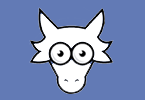These days, it seems everyone wants to be a writer. If you’re serious about fiction writing, you too can bridge the gap between “wanting” and “being”. Here’s how.
1. Master Your Basics
Yes, grammar and spelling might be boring. But they’re also the tools that will help you convey your message to the reader in the clearest form. If your readers end up misunderstanding your brilliant story ideas, what’s the point in telling the story?
If you need a crash course in English grammar, consider this Udemy best-seller: https://www.udemy.com/easy-english-grammar-improve-your-english-in-one-day.
2. Choose Your Field
What type of writing interests you? Commercial? Literary? Experimental? Genre-specific? Before you decide that everything lies within your literary purview, consider that choosing a niche and sticking with it will make your life easier, both in advancing your writing skills and in marketing your complete works. Don’t be afraid to commit. You can always change it later.
Not sure what your options are? Here is Wikipedia’s list of genres: https://en.wikipedia.org/wiki/Genre_fiction. You can always cross genres for more interesting results, but don’t go overboard! Your SF/Crime/Romance/Western story might be harder to sell (though definitely not impossible).
Not sure where to start? Think of the stories you enjoy reading. What do they have in common? Do they fall under a specific genre? There’s a good chance you’ll enjoy writing what you enjoy reading, so research your reading habits for clues.
3. Study Your Field
Now that you know your niche or focus, it’s time to scope out existing works. Stephen King is known for saying, “If you want to be a writer, you must do two things above all others: read a lot and write a lot.” Notice that “read” comes before “write”.
If you’re unfamiliar with the modern and classic works in your chosen writing space, you put yourself at risk of recycling ideas unknowingly. That super-awesome twist in your story? It just might be an overused trope in your writing space. To avoid this kind of embarrassment, you need to be familiar with existing works, or at least with common tropes and plot lines.
4. Brainstorm Ideas
Now that you have some understanding of how your writing space works, it’s time to come up with those brilliant ideas. Always carry a notebook with you, and write down every writing-related thought that excites you. Don’t rely on remembering it later. Too many good ideas have perished this way.
Let your ideas take any shape they wish: settings, character, a character’s journey, a specific scene, a fully fleshed-out story concept. You’ll piece these ideas together into a coherent outline in the next section. Collect ideas that might seem unrelated. Originality often comes from combining foreign ideas. Don’t be afraid to experiment here.
5. Fleshing Out a Plot
Now’s the time to transform that seedling of an idea into a full-grown story. If you’re a plotter, you may want to chart in advance every aspect of your plot. If you’re a pantser (i.e. flying by the seat of your pants, winging it), some plotting might still benefit you.
In particular, try to outline the story’s beginning (the character’s status quo), the inciting event (which sets your character in motion on the path to change), and the climax (where the character completes its transformation). These three points will serve as your compass.
Need help planning your novel? Try NovelChick, the online story planner. It will guide you through the process.
6. Writing
Yes, it’s finally time to sit down and write. How to become a writer has to include some writing, after all.
Best advice: turn off the critical side of your brain, connect with your creative inner child, and let loose. Don’t worry about getting it right, or worse, getting it perfect. You won’t. Not on your first try. And that’s absolutely all right. Don’t be afraid to make a mess. On the contrary: revel in your mess. The creative process is not a clean, streamlined function. It’s messy, it’s tentative, it’s daring, it’s fun. Let it be all that.
Above all, stick to writing. Suppose you manage 500 words a day. That might seem hardly anything, but within 120 days (4 months) you’ll have a full-length novel on your hands. Always remember: the small numbers do add up. Plug through it and don’t give up.
7. Editing
Congratulations you have a first draft. Remember that critical side of your brain, the one you shouldn’t use when writing? Now it comes into play. Edit for basic clarity using your grammar and spelling tools. Edit out weak or redundant words. Edit out slow scenes that do not advance the plot. Edit in more suspense, more conflict, more sparks, more emotion, more impact.
Keep in mind that a person cannot fully edit her own manuscript. You just can’t disentangle yourself from your own text to the level required for true objectiveness. It’s only natural. Always consult an editor before releasing your stories into the wild, be it an editor assigned to you through trade publishing, or a freelance editor you choose before self-publishing your stories.
Remember, every story you release reflects upon you as a writer. Don’t turn loose bad writing, or it will come back to bite you in the toes.
Congrats!
You now have your answer to the question, “How to become a writer?” Sure, it’s a long answer, and it will take you a good amount of time to follow and apply it. Just like anything worth doing.
What to Expect?
“Your first million words don’t count,” it’s been said. True or not, get used to the idea that you’ll be writing a lot before you become a competent writer. Just slog on, stay calm, and keep writing. Good writers become good because they refuse to quit, and because they always aspire to better their craft. That can be you, too, if you only choose so.




